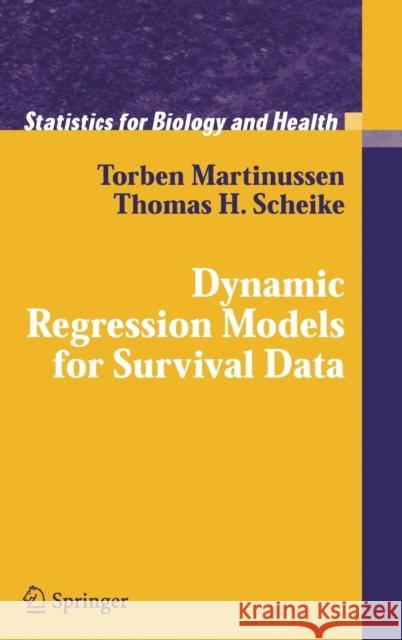Dynamic Regression Models for Survival Data » książka
Dynamic Regression Models for Survival Data
ISBN-13: 9780387202747 / Angielski / Twarda / 2006 / 488 str.
Dynamic Regression Models for Survival Data
ISBN-13: 9780387202747 / Angielski / Twarda / 2006 / 488 str.
(netto: 575,06 VAT: 5%)
Najniższa cena z 30 dni: 578,30
ok. 16-18 dni roboczych.
Darmowa dostawa!
In survival analysis there has long been a need for models that goes beyond the Cox model as the proportional hazards assumption often fails in practice. This book studies and applies modern flexible regression models for survival data with a special focus on extensions of the Cox model and alternative models with the specific aim of describing time-varying effects of explanatory variables. One model that receives special attention is Aalen's additive hazards model that is particularly well suited for dealing with time-varying effects. The book covers the use of residuals and resampling techniques to assess the fit of the models and also points out how the suggested models can be utilised for clustered survival data. The authors demonstrate the practically important aspect of how to do hypothesis testing of time-varying effects making backwards model selection strategies possible for the flexible models considered. The use of the suggested models and methods is illustrated on real data examples. The methods are available in the R-package timereg developed by the authors, which is applied throughout the book with worked examples for the data sets. This gives the reader a unique chance of obtaining hands-on experience. This book is well suited for statistical consultants as well as for those who would like to see more about the theoretical justification of the suggested procedures. It can be used as a textbook for a graduate/master course in survival analysis, and students will appreciate the exercises included after each chapter. The applied side of the book with many worked examples accompanied with R-code shows in detail how one can analyse real data and at the same time gives a deeper understanding of the underlying theory.











